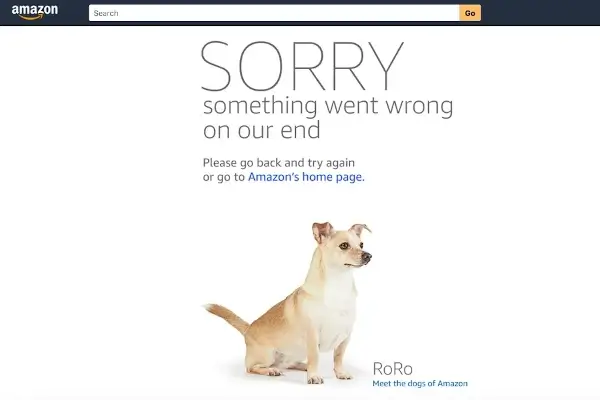
Hopefully, you are consistently getting fresh leads and customers through your website. However, like an automobile that needs to be checked regularly for problems, you need to maintain your website for optimal performance. That's important for your search rankings, general user experience, and conversions.
This guide will discuss how often you should monitor your website. We'll also look at some of the essential tasks you should take to ensure things progress nicely. That way, you can ensure a consistently high conversion rate, robust search performance and provide a great user experience for visitors.
Importance of frequent monitoring
Monitoring your website frequently gives you a ton of valuable data. Monitoring could also be used for market research and enables you to better decide on future company actions.
Frequent monitoring is also a process of quality assuring your website. Issues with your website can occur slowly over time. You can also face a sudden overnight disaster. Just in case you needed convincing, below are some reasons frequent monitoring is so important.
1. Avoid Revenue Loss
When Facebook went down for approximately six hours on Oct 4, 2020, at 12:30 EDT, the social media giant lost $65 million. A social giant platform going dark for six hours is a massive hit for the users and the platform's company.
Regardless of whether you're a billion-dollar company or a small start-up, importance ought to be given to your website's uptime. If you want to start an online business, note that your website's uptime is crucial.
If your site is down, people get frustrated. If it's constantly down, it could lead you to lose your loyal customers to services with better online performance. A site with a lot of downtimes will also rank lower on search engines.
Bad customer experience, losing customers to industry competition, and poor SEO performance are a cocktail that can negatively impact your business. Ultimately, every second your site is down can cost you.
Your website doesn't even need to be down for you to lose those leads. Problems like slow page speed can also impact revenue.
2. Protection from cybercrime
In June 2021, Volkswagen was a victim of a cyberattack. Cybercriminals stole data from more than three million customers. The stolen data included personal information such as names, contact information, home addresses, driver's license numbers, and vehicle identification numbers.

Cybercrimes are often complex and challenging to trace. You need to hire experts to analyze what went wrong and fix the problem, which is expensive. Besides, cyber-attacks can come from within, targeting your company computers. This is why you need to invest in a user activity monitoring system that will lead you to the source of potentially harmful activities.
That's on top of the reputational damage and potential court cases from your customer base. Charges do typically get filed, too. Paytime, for instance, was charged with negligence and breach of contract by companies that used the digital payments platform in 2014. That was after unknown parties gained access to its computer systems and stole the financial and personal information of over 200,000 individuals.
Companies facing these charges don't just have to deal with reputational damage. They lose money, too.
We're not just referring to the exorbitant attorney fees they'd have to pay for legal representation. If a court rules in favor of the victims or even if the company just settles, they'd need to shell out a lot of money. Facebook, for instance, recently agreed to pay $6.5 million as part of its settlement of a 2018 class-action lawsuit. The charges had alleged negligence on the social media giant, enabling hackers to take over Facebook user accounts.
If hackers were to gain access to your website and your systems, they would be able to do things that include but are not limited to the following:
- Contact and persuade your customers on your behalf
- Steal customers' personal info
- Steal customers' credit card and banking info
- Wipe transcripts, records, and other pertinent data
- Publish blogs and announcements on your behalf
- Gain full administrator/developer access to your website
- Gaining access to more sensitive systems
- Flooding your website with fake traffic
Continuous security monitoring can prevent any cybercrime attempt on your website. CSM includes using antivirus software to detect brute-force attacks, malware and backdoor entries, and other vulnerabilities.
It would be best to turn to your IT team or consultants for support. You might want to get cybercrime insurance. Protection will help you mitigate risks, a crucial consideration for businesses.
3. Optimize your operations
Every 100 ms delay in page load time costs retail giant Amazon 1% in sales. Faster site response times mean higher conversion rates and an improved customer experience.

Regularly monitoring your website will help you identify server issues and page load issues. Webpage monitoring also includes tracking transactions on the website. Pinpointing the causes for these inconveniences enables you to resolve issues faster, reducing customer complaints.
How Regularly Should You Monitor Your Website?
It would be best to consider various factors when developing your website monitoring plan. These factors include the nature of your business, the customer details you are collecting, the size of your company, and the content management system you are using will all impact your approach.
At the minimum, you should monitor your uptime. That will notify you of how frequently your site is inaccessible. Monitoring page speed is also essential. Other factors to monitor include site traffic. A tool like Google Analytics provides access to data like page load speed and visitor numbers. You also want to monitor things like brute force attacks.
The nature of your online business will play an essential role in the other checks you implement. If you're a news and content website, a cyberattack would not be as critical as if you were a hospital website that contains sensitive patient medical information. Sites that collect sensitive data, such as eCommerce sites, need stringent malware protection, systems monitoring, and server maintenance.
The website monitoring plan you put in place needs to suit the needs of your business. Our service specializes in remote monitoring your online systems should suffice for many companies. WebSitePulse includes server & network monitoring, webpage monitoring, and even custom transaction monitoring.
Bottom Line
A website is the digital forefront of your business. Therefore, it is crucial that you consistently look after it and see that it's 'well-oiled,' like a car.
Website monitoring prevents revenue loss as a result of website downtime and system shutdown, protects the website and sensitive customer data from cyberattacks, along with all the ill effects of hackers' systematic breaches, and increases webpage efficiency over time.
How often you should monitor your website depends on the kind of business you operate, your regular traffic, and whether or not you have signed-up customers. It's still best to properly allocate resources to other aspects of your business.
However, one shouldn't overlook the importance of website monitoring. Keeping your homepage in tip-top shape will yield higher conversion rates and better overall satisfaction from your existing customers.


 Copyright 2000-2026, WebSitePulse. All rights reserved.
Copyright 2000-2026, WebSitePulse. All rights reserved.